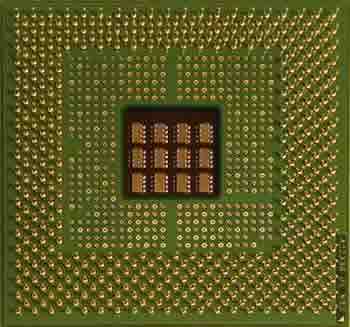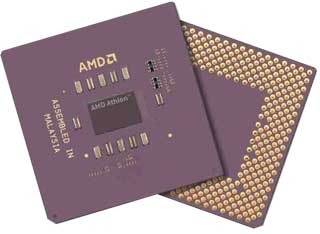Overview of the CPU
The CPU, which stands for Central Processing Unit, is the brains of the PC. It is also referred to as a "processor" or "chip". The CPU directs, coordinates and communicates with the hardware components and performs all of the "thinking". What a CPU actually does is perform mathematical calculations. It is the software that people write that translates those calculations into useful functions for us.

![]()

The speed of the CPU, generally speaking, is the number of calculations it can perform in one second. It is more complicated than that, but that is a reasonable way to think of the speed. A 500 MHz (megahertz) CPU performs about 500,000,000 mathematical calculations per second.
As the speed of new CPUs increase, the difference is becoming less obvious to computer users. A CPU that is twice as fast as another one will not result in a PC running twice as fast. The CPU has to wait for other, slower components and for the user too. The CPU spends a lot of time sitting idle, waiting for something to do. For example, it waits for you to press a key or for the hard drive to retrieve some data or the video card to draw what will appear on the screen.
CPUs now have something called a "cache" or memory cache. The memory cache is where information is stored that the CPU is likely to need soon. This memory is in addition to the normal memory installed in a PC. The difference is that the cache is built right into the CPU, and it is much faster. Cache memory was invented to help reduce the time the CPU had to wait while information was retrieved from the standard memory.
The two largest CPU manufacturers are Intel and Advanced Micro Devices (AMD). Their products compete head to head and are substantially similar. The CPUs from these rivals each have their own champions and will tell you why one chip is better than the other. The key difference for you may simply be price or speed.
Page 1 of 3





